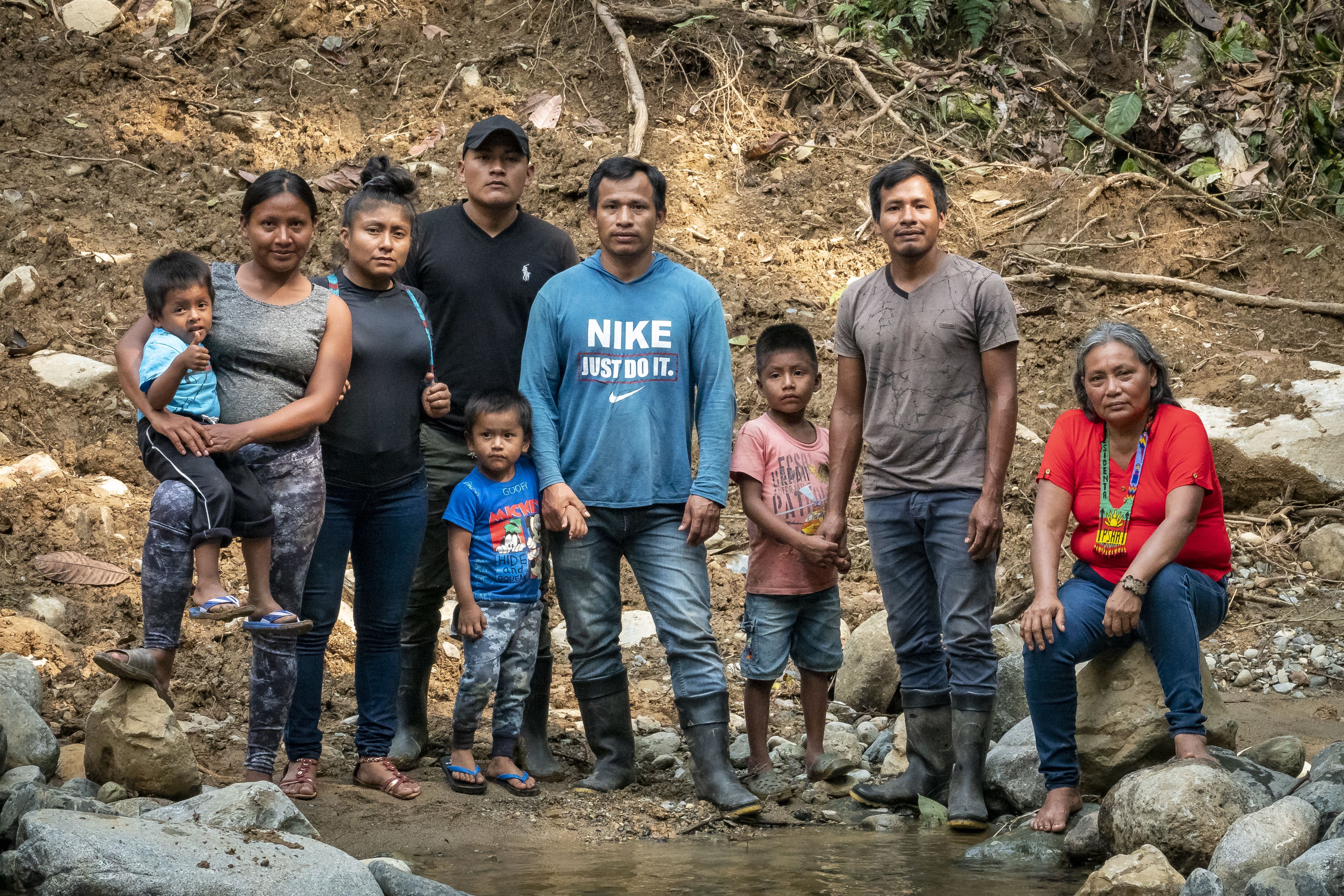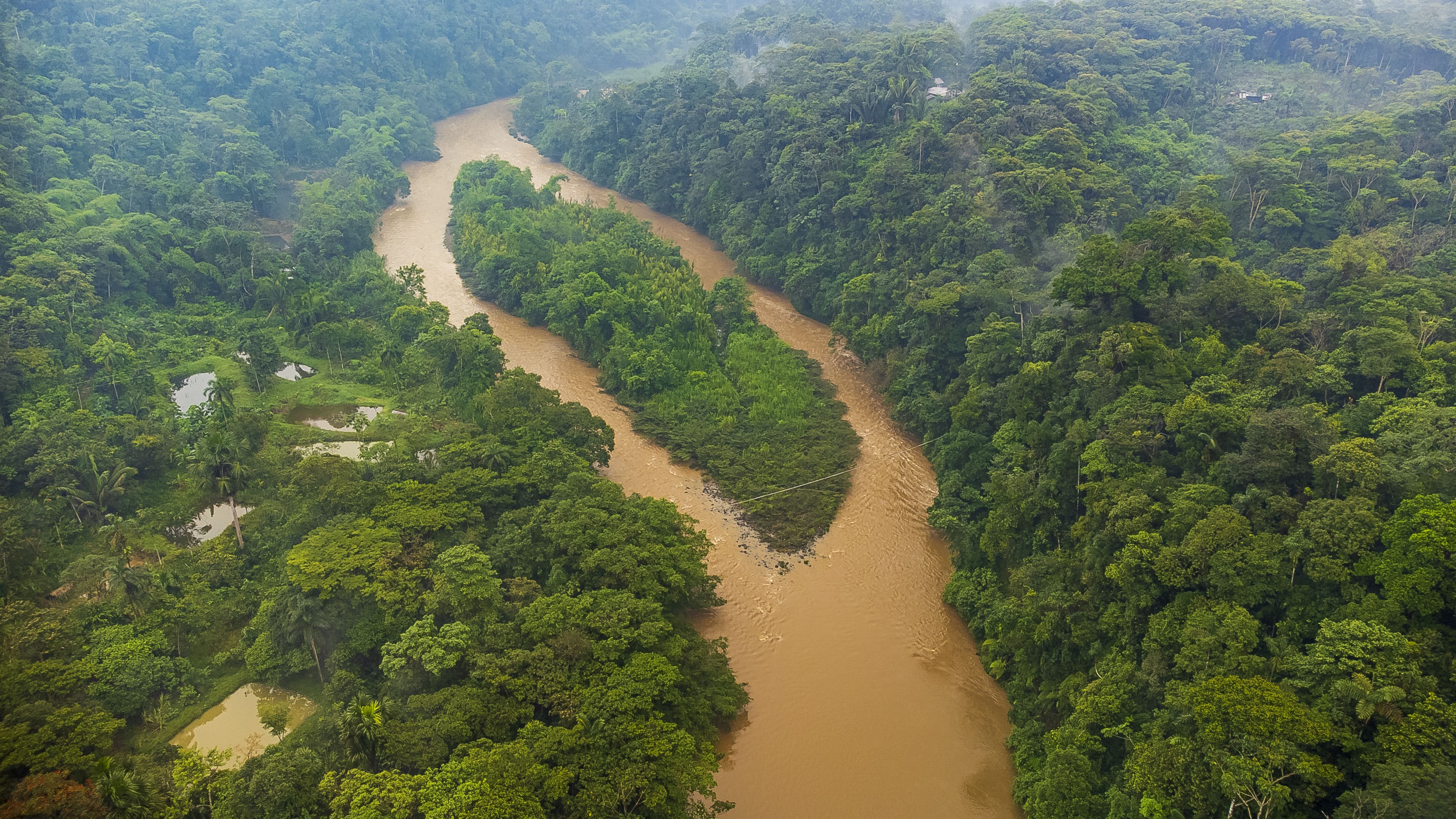NextGen Ecuador
A special Daily Mirror project in partnership with Hivos

In the final instalment of the NextGen International project, with support from our charity partner Hivos, Indigenous young people living in Ecuador’s Amazon rainforest write how they stood up to energy and oil giants who want to destroy the jungle for profit.
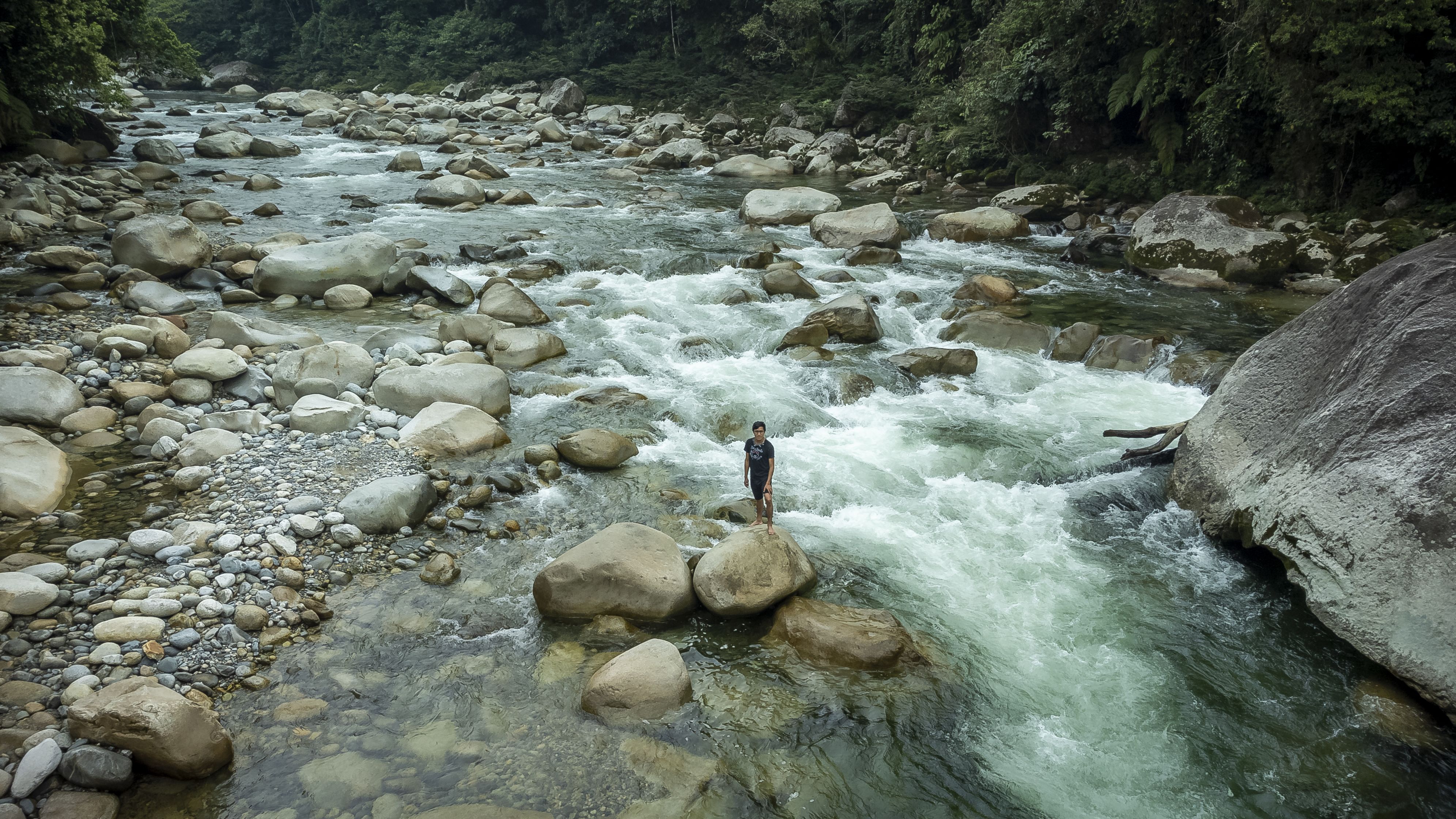
Saving the Piatua River
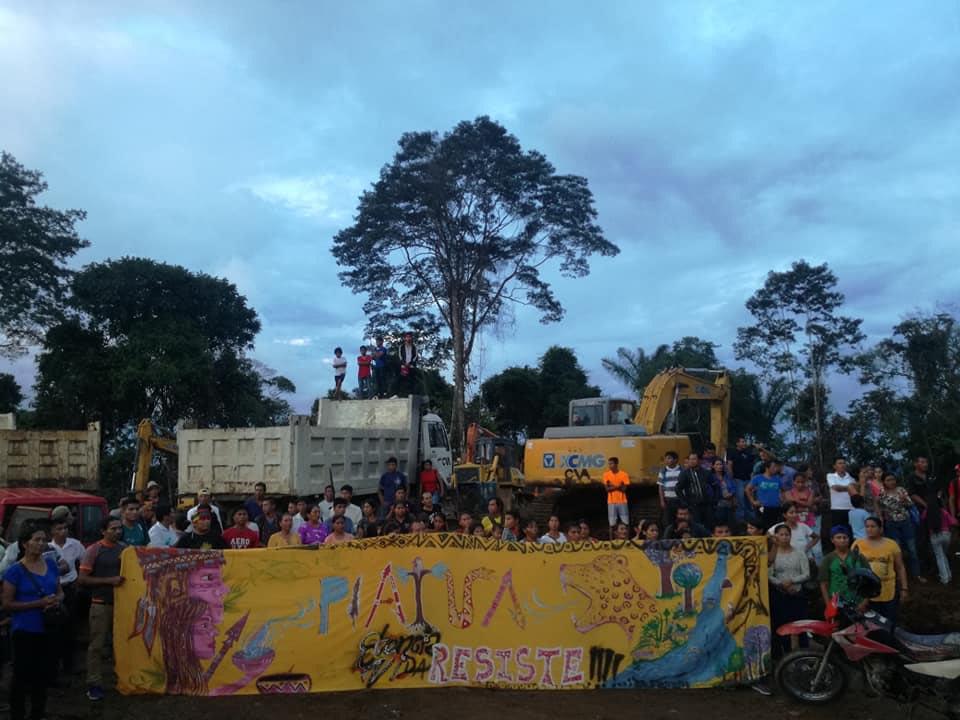
Student and campaigner Alexis shares his account of how he mobilised a major youth campaign which stopped a hydroelectric company from installing a dam on a sacred river.
By Alexis Grefa, 25, in Santa Clara, Ecuadorian Amazon
AS a child, my friends and I would walk for hours towards the head of the river in search of the best lagoons to dive in and the best rapids to ride.
The crystal clear waters of the Piatua river in the Ecuadorian Amazon is not only a vital resource, but the beating heart that gives life to the Kichwa people - an Indigenous Amazonian nationality.
It is also one of the last rivers in the region that is unspoilt and uncontaminated from deforestation, mining and dams.
As well as holding spiritual significance to my people, it’s where we get our water from, where we bathe, and where we fish, just as our ancestors did centuries ago.
Many of us who had moved away from the community to study found ourselves being pulled home to protect the river and the ancient knowledge and significance it holds.
Diggers and trucks arrived in Santa Clara in 2019 to begin work on a hydroelectric dam, which had been permitted by the government without consulting the Indigenous people who it would deeply impact.
At first the company, Compañia de Generación Eléctrica San Francisco Genefran S.A, turned up to the communities of Santa Clara full of gifts and promises.
They told us the hydroelectric plant was a vital source of energy for our communities, the wider population of Ecuador and that we would benefit directly from it.
They also guaranteed a consultation with the communities before any work took place.
However, we realised that as we were being bought with gifts, big machines were already destroying our jungles, opening large roads and spaces to get to where they would take the water for their hydroelectric plant to work.
Afraid and desperate, I knew I needed to do something so that they did not destroy the river where I grew up.
It was a feeling shared by my fellow campaigner Jessica Grefa, 25, who told me: “I listened and saw but I had no voice at that time, but I felt that I wanted to shout and tell them “what’s wrong with you, have a conscience”.
Another campaigner, Gonzalo Shiguango, 28, said: “The hydroelectric will harm the river Piatúa so all the community from other provinces supported us to stop its construction.
“We’ve fought day and night to protect and defend our Piatúa river, because by the river we can fish and feed ourselves, feed our children and our parents that are older now, so we’re the food suppliers for the whole family.
“That’s why it is a great advantage for the river to be so crystal clear, other rivers are not like this one, for that reason other provinces have also supported our struggle.”
Over 60 young people rallied together and agreed to fight them without fear.
The construction of the dam was imminent, the machinery advanced day by day without rest, so we began to investigate how they carried out this work and figured out that several things were wrong.
First, they based all their environmental impact study and permits on information from a completely different river, located in the Ecuadorian highlands and that does not have characteristics similar to the Piatúa river at all.
The company also claimed that the construction of the dam would not affect the flow of the river at all, however buried in their report, it said 75% of its flow would be moved through large tubes to another river.
Little by little we began to understand the magnitude of the devastation that would come.
Our organisation, Piatua Resists, which is formed of indigenous and non-indigenous people, decided to take action both on the ground and through the courts.
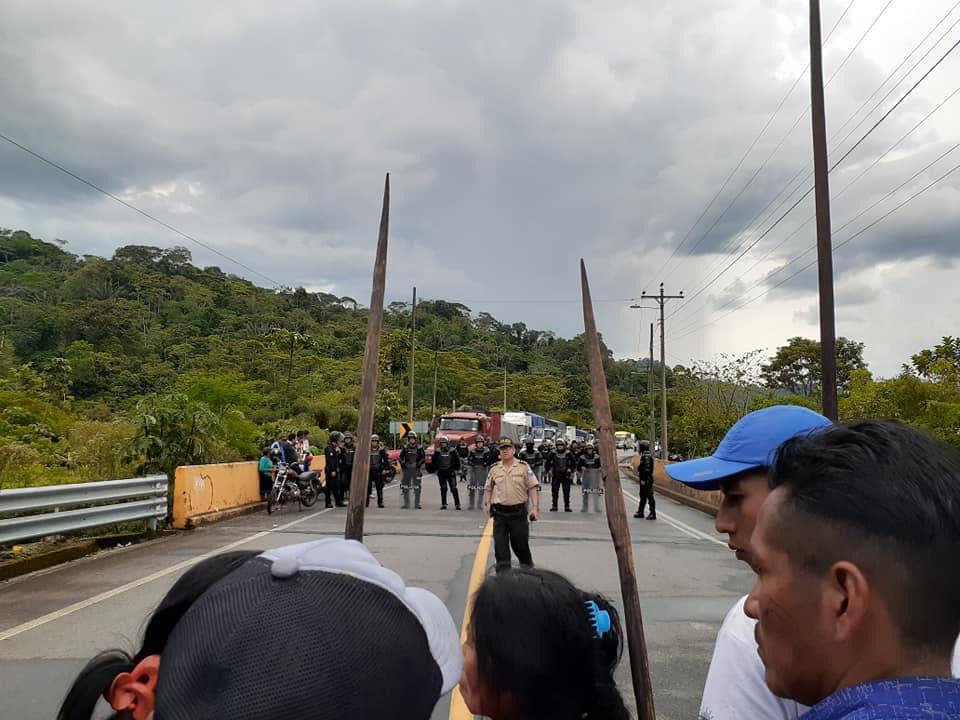
Ecuador is the first country in the world to enshrine the rights of nature in a national constitution.
While lawyers argued in court that ours and nature’s rights were being violated, we mobilised to the area where the headquarters of the project was being constructed.
Jessica recalls: “I remember that we walked to the site, it was devastating because we saw a very advanced percentage of trees that were cut down
“Seeing for myself shook me completely, and I thought “no, why do they do these things”.
“I started to shout “what’s wrong with them, why do they do this”
The project had advanced a lot.
The local people were devastated because it was damaging their home and that impotence made them want to incinerate the machines.
Instead, we opted for a peaceful protest and resisted for days, sleeping on the site, protesting as loudly as we could, closing roads so that they would pay attention to what was happening to us.
Days and months went by and we gradually understood how this dam was merely a small cog in a machine to destroy our rivers and jungles in search of oil and gold.
We learnt there were plans to begin a new oil project nearby - Block 28 - and to open a mining site in a neighbouring community.
This proposed hydroelectric plant was nothing more than sustenance for these projects and not a necessity for the Ecuadorian population.
Back in the courts, the whole saga was full of corruption - judges bribing other judges to issue sentences in favour of the construction of the hydroelectric plant, constant threats to leaders, bribes to community leaders.
But thankfully, at the beginning of September 2019, justice prevailed and the noise we had been making about the dam had been worth it.
The court handed down a ruling that halted the construction of this project, clinching a victory for Indigenous people and wildlife of the Amazon.
It was a landmark case because it was the first in the country to give rights to a river.
The fight, however, is far from over.
After two years of winning the Piatúa case and sending the hydroelectric company away, they have recently returned to my community.
They are seeking to pass off a public event as a new process of “prior consultation”, but we will not be fooled and will continue to shout about their corruption.
We will not rest until this river is completely safe because it is our legacy, not only for our children, but for the entire planet and its balance.
Compañia de Generación Eléctrica San Francisco Genefran S.A could not be contacted for comment.
Hivos supports the people of Piatúa through the All Eyes on the Amazon programme, amplifying the voices of Indigenous leaders and strengthening the capabilities of young communicators through consolidated efforts of strategic communication, capacity-building and linking and learning.
Learn more at: www.toamazonia.org
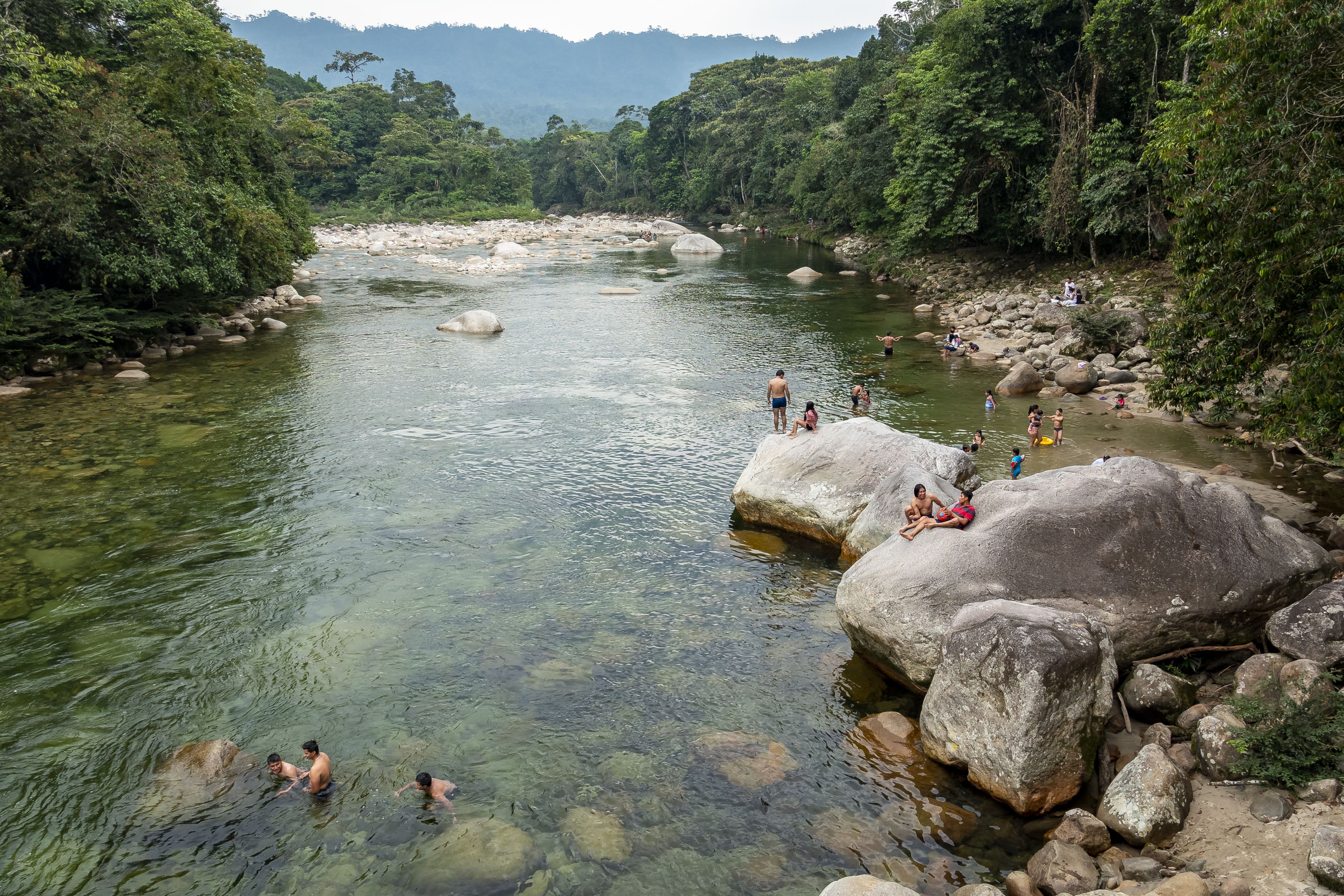
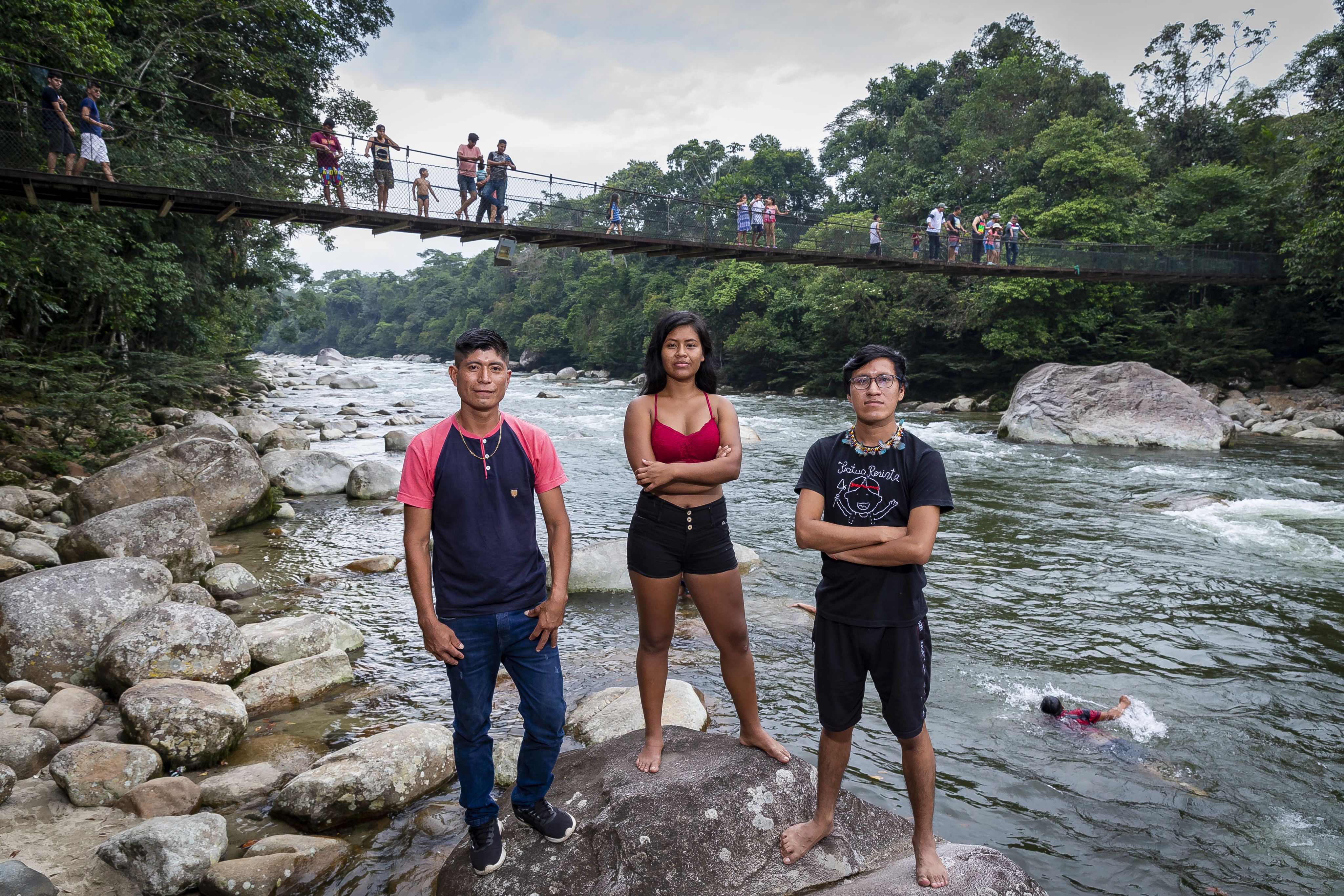
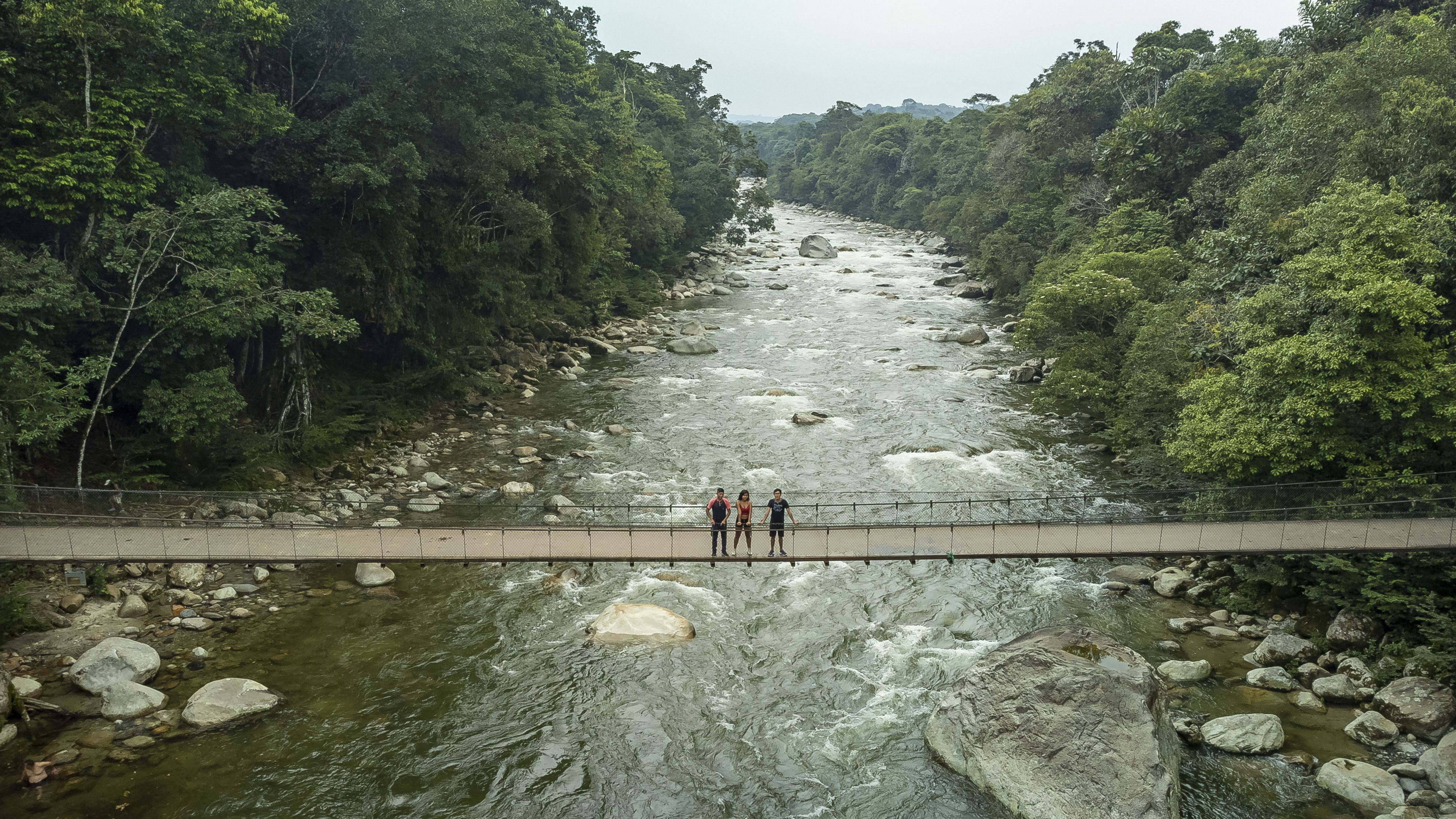
How people of the Amazon stopped a major oil exploration project
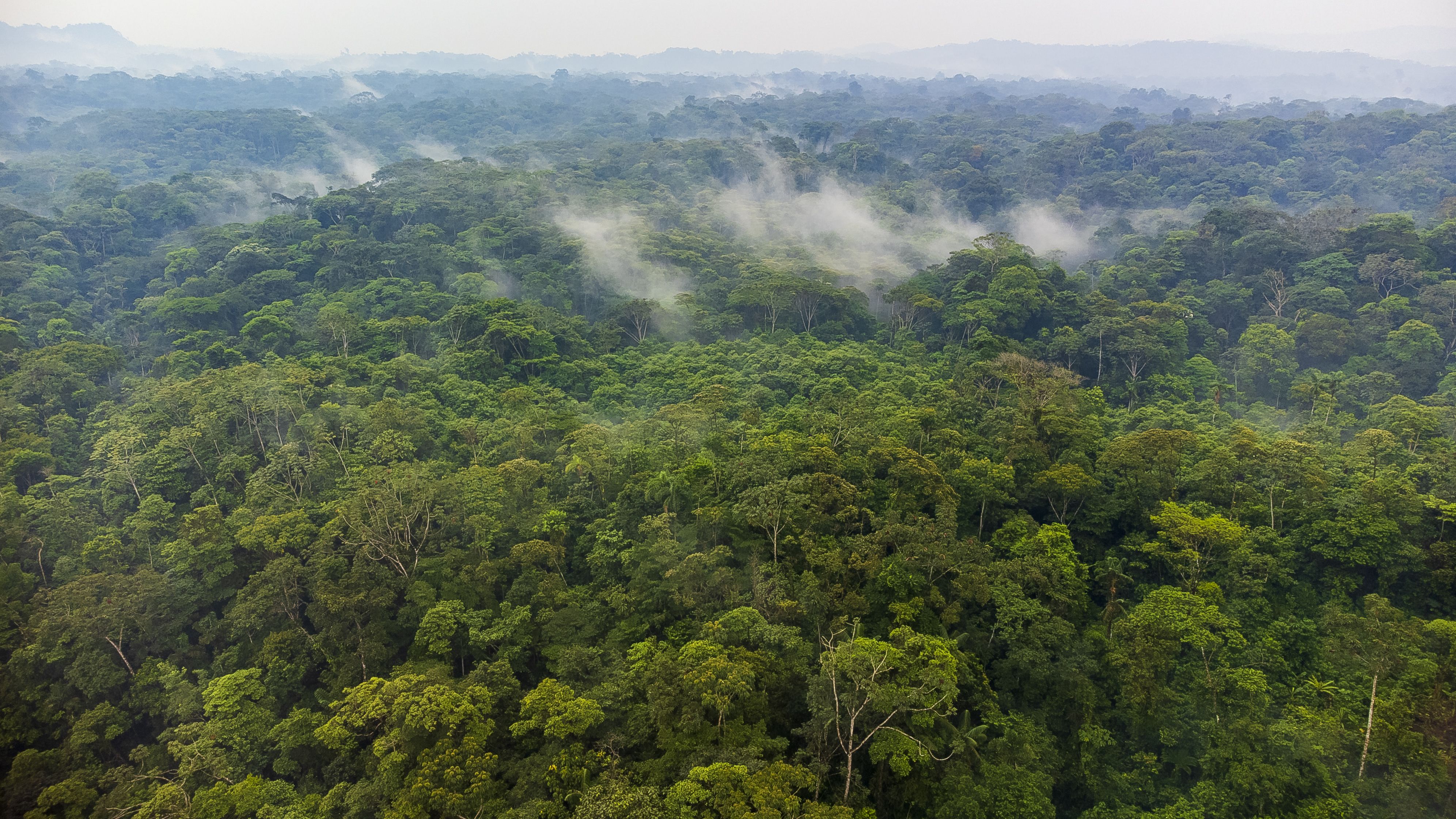
By Gabriela Garces, in Pastaza, Ecuadorian Amazon
Campaigners say they will fight to the death to prevent oil companies from destroying the Amazon jungle.
Oil companies have been trying to open an exploration site on Ecuador’s Pastaza river for over 20 years, but thanks to the strength of the people defending it, they have failed.
Much of Ecuador’s Amazonian region is divided up into oil blocks, which campaigns say signals the government's plan to continue with oil exploration throughout the rainforest..
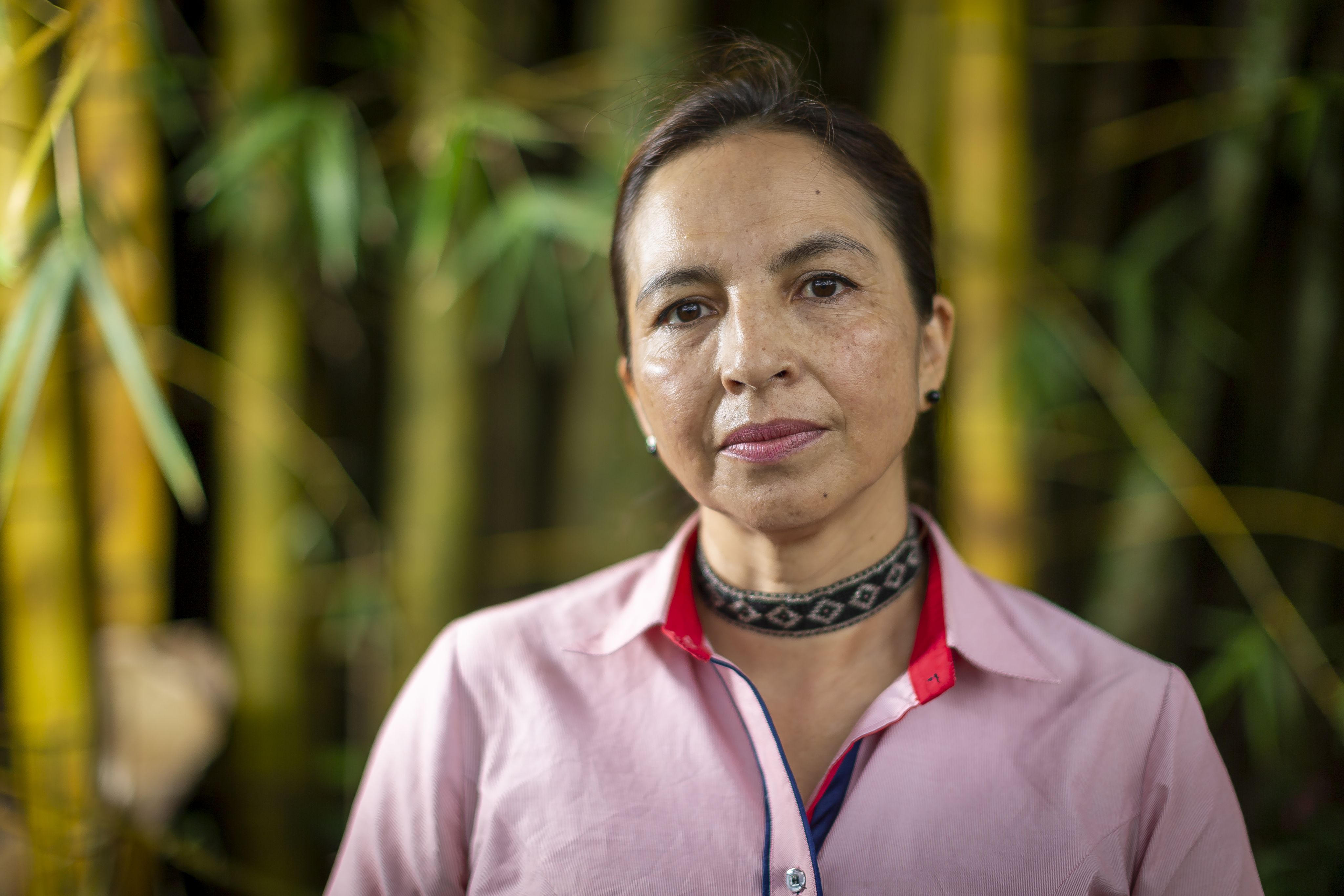
Rossy Gaibor
Rossy Gaibor
The most recent attempt to construct on the river in the area of Block 28 was in 2020 and Rossy Gaibor, a teacher and ornithologist, was involved in the campaign to stop it.
“I am literally willing to sacrifice my life for nature,” she says.
“Because without nature, there is no life. I want to be part of the solution, not part of the pollution. We will continue to fight as long as we are still alive.”
The Pastaza river is of great ecological significance to the area and is home to over 85 species of birds, four of which are endangered.
Block 28 covers an area of 175,250 hectares, 97% of which is located in Pastaza province, and contains estimated oil reserves of 30-50 million barrels.
This directly affects the lands of the Kichwa peoples, an Indigenous Amazonian nationality, which includes more than 73 Indigenous settlements and 43 other communities.
Andrés Tapia is the director of communications at the Confederation of Indigenous Nationalities of the Ecuadorian Amazon (CONFENIAE) and is part of the campaign against Block 28.
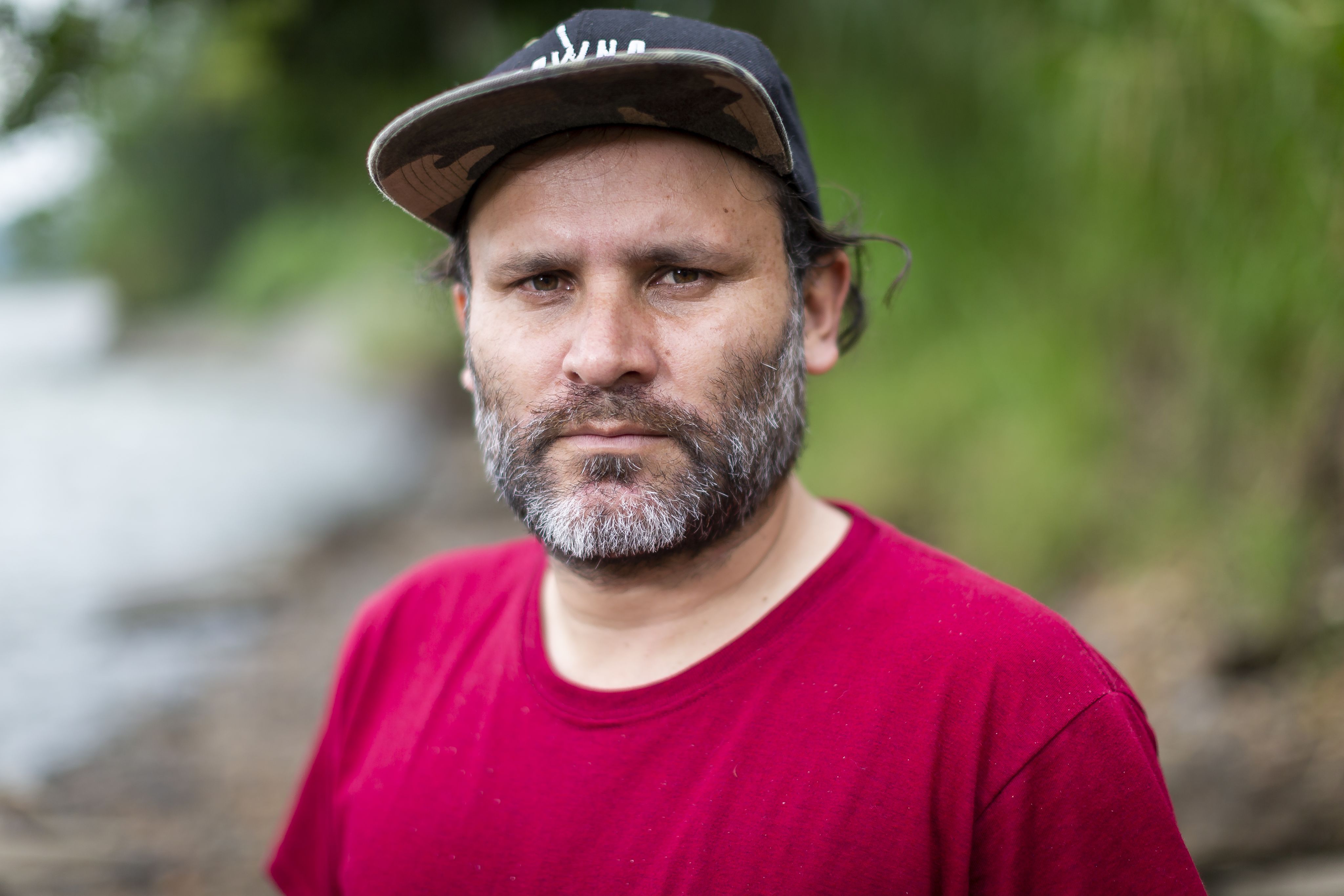
Andrés Tapia
Andrés Tapia
He told how the oil companies tried to bribe people with school uniforms and other supplies.
“They dedicated themselves to positioning their presence by handing out backpacks in schools and school supplies to legitimise themselves and that is when we knew their true intentions to exploit block 28,” the 39-year-old says.
Marlon Vargas, president of CONFENIAE, adds how the coronavirus pandemic caused people to panic and accept help from the oil companies, which the company then claimed was the people’s consent for the oil block to go ahead.
“There are some comrades who get convinced by the offer of the oil or mining companies that they’re going to stop poverty,” he says.
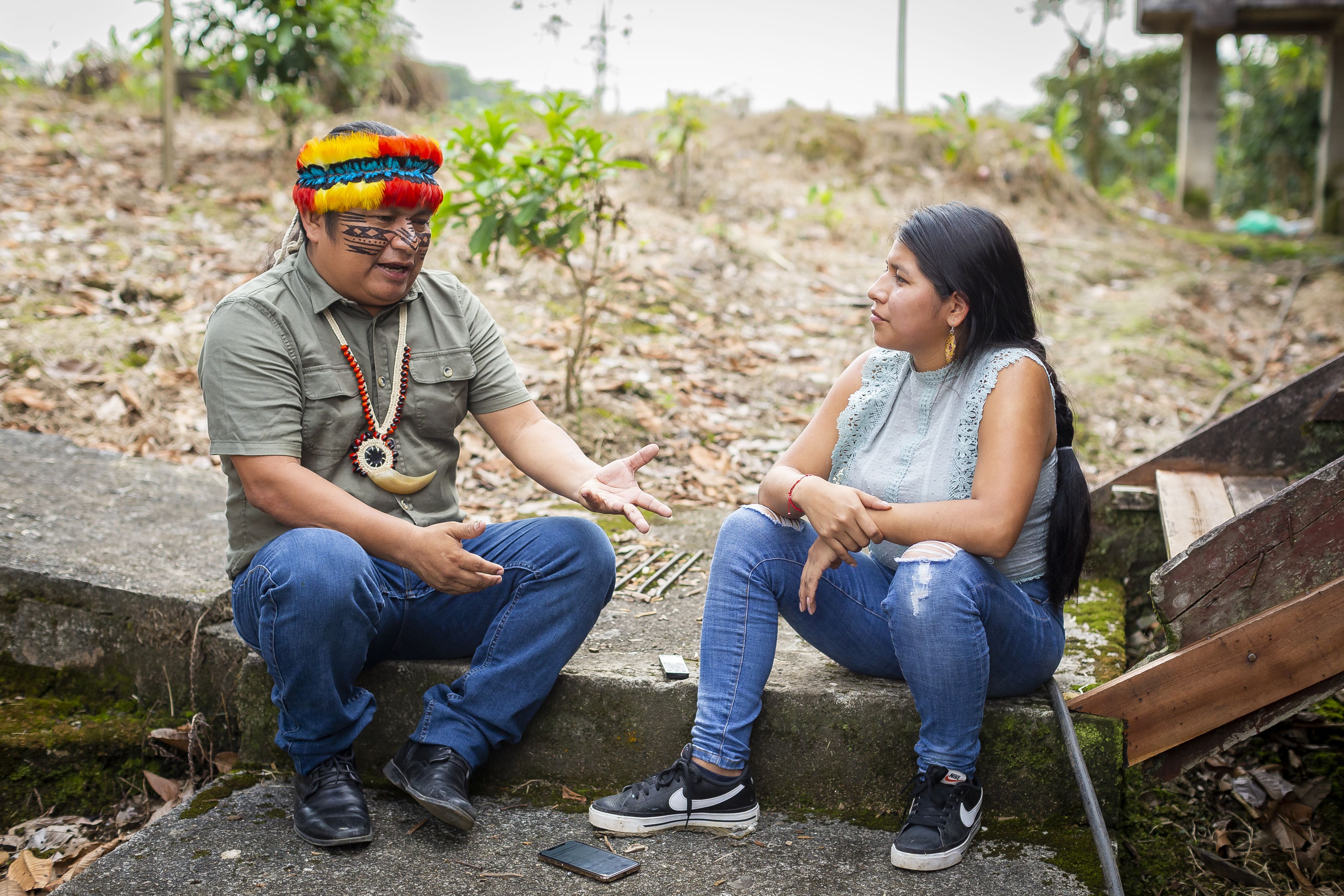
Marlon Vargas speaks to Gaby
Marlon Vargas speaks to Gaby
“Many of our people are naively falling for it, they even are in favour of the companies. What did the company that wants to exploit Block 28 do? They began to deliver school supplies, uniforms, scholarships, among others.
“So people thought, we are in an economic crisis due to the coronavirus, we must support our people.
“Since they do not have resources, they accepted their offerings and signed in favour of oil exploitation in Block 28. And that’s what the company passes as consent. But that is unfair.”
This pocket of the Amazon is densely populated and is a big attraction for tourists who seek the clear waters for watersports.
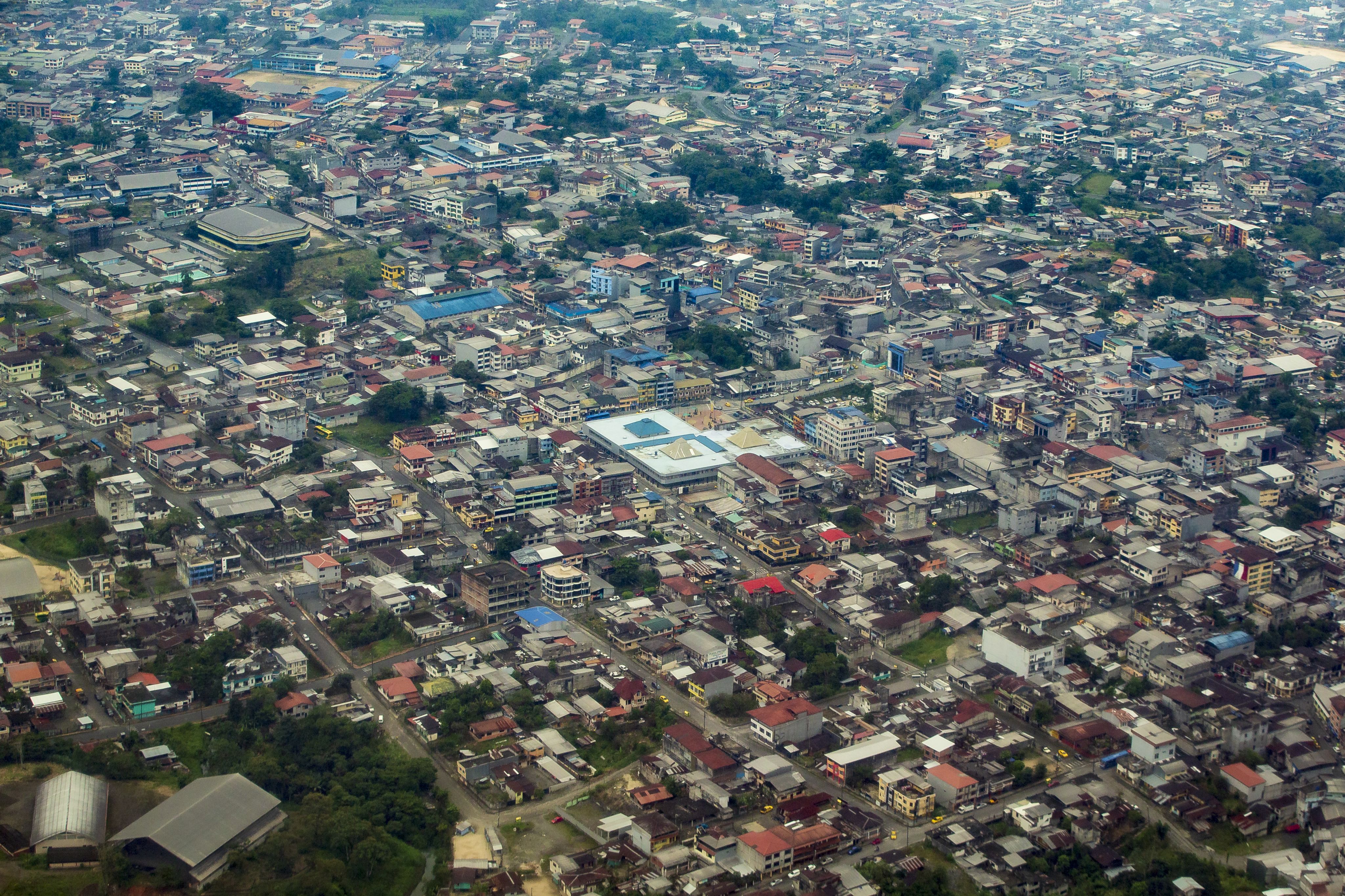
The city of Puyo in Ecuador's urban Amazon
The city of Puyo in Ecuador's urban Amazon
“People survive in this corner of the Amazon because of clean waters, perfect for rafting and much sought after by tourists, which are not found elsewhere in the region,” Andres says.
“The income generated by ecotourism is highly valued, and means the local population as a whole is very keen to adopt and promote conservation efforts.
“The men and women of the forest, whether Indigenous or peasants, have a long-lasting familiarity with and deep knowledge of these remote territories, such is the strength of their relationship with the rivers and the forest.”
The oil companies involved did not carry out any legal consultations with the people before starting the exploration process, but thanks to the mobilisation of the huge campaign, they were stopped just in time.
Andres adds: “The historical position of Pastaza, of the nationalities and of the social sectors has been against oil exploitation which is why it is one of the only provinces that is not directly affected.
“With videos, social media, public assemblies, and press conferences we were constantly talking about the meaning of Block 28 exploitation.
“Even during the pandemic, we held assemblies so that the authorities could sense the rejection of the people of Pastaza to even the possibility of exploiting Block 28.”
Because of the community's resistance, the exploration of Block 28 stopped and the companies involved retreated.
The people of Pastaza continue to defend their land and vow to fight anyone who tries to destroy it.
Rossy adds: “Block 28 would have been an unprecedented ecocide since it would have left us without water not only in the upper Amazon, but also in the lower Amazon, and everything that follows.
“This is an example of when the people unite, the voice of the people is commanded.”
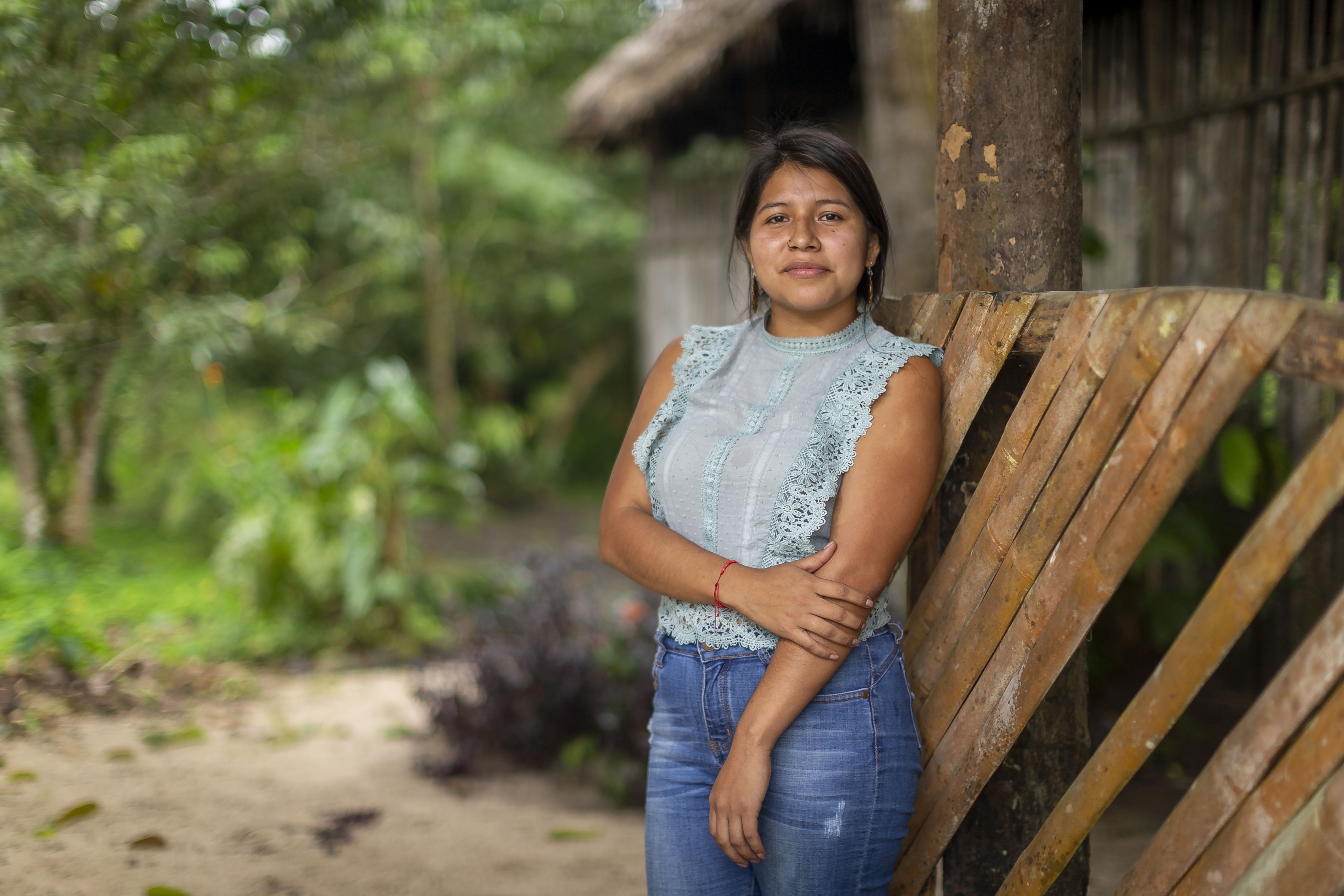
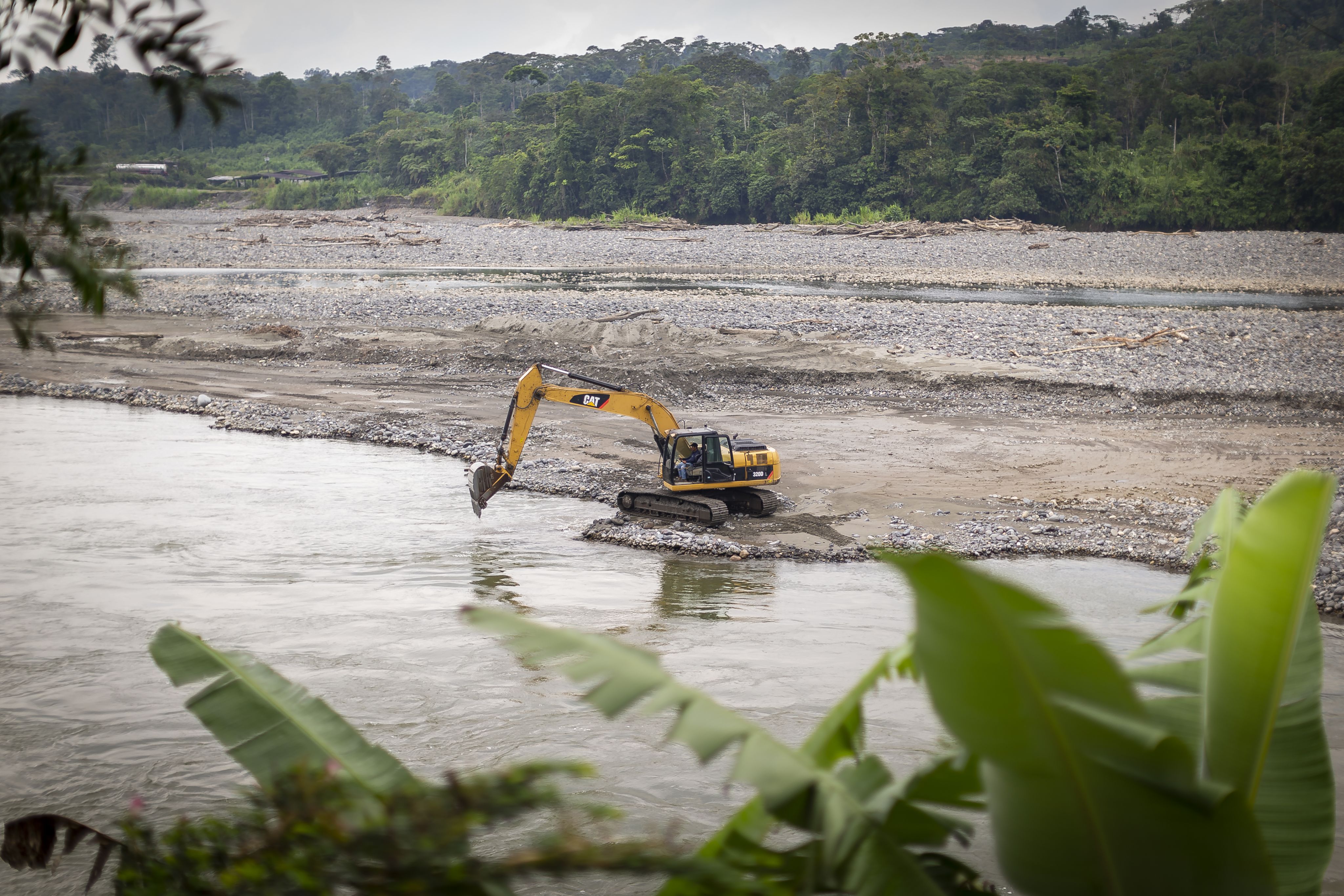
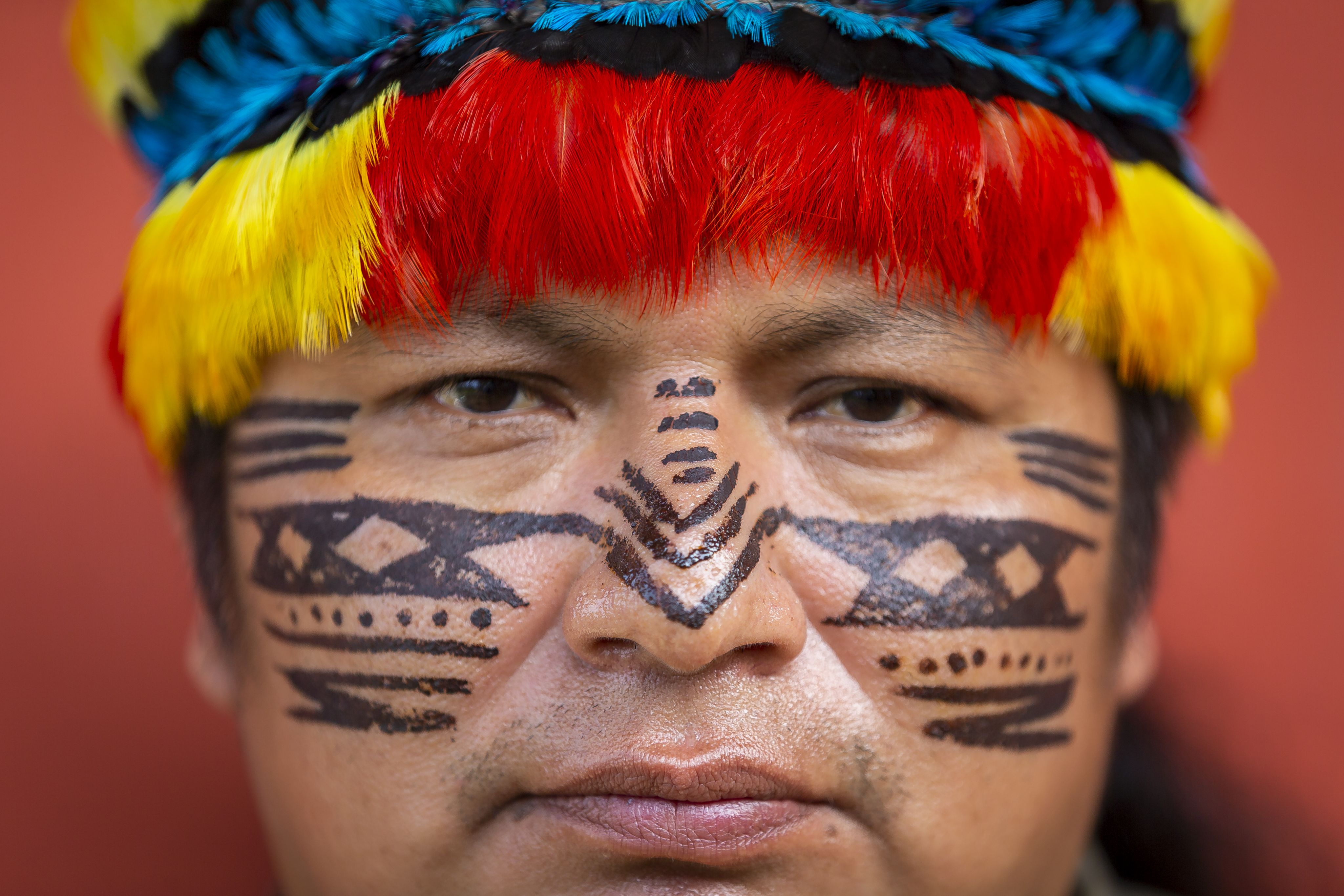
All Eyes on the Amazon
Equipping Indigenous people with technology to protect their ancestral land
By Rhian Lubin & Adam Gerrard in Maikiuants
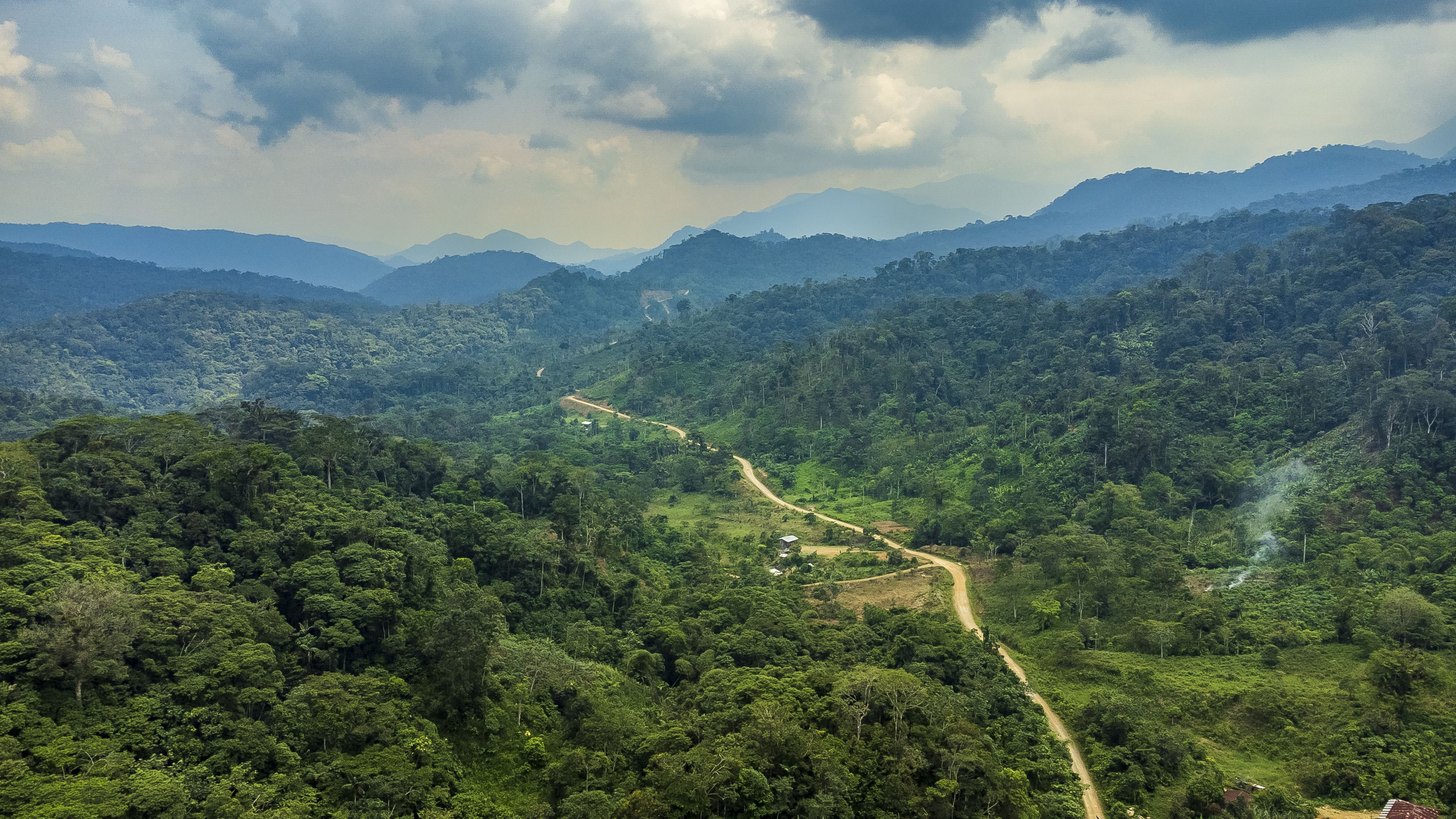
Drone footage captures damage caused to Maikiuants community by illegal miners

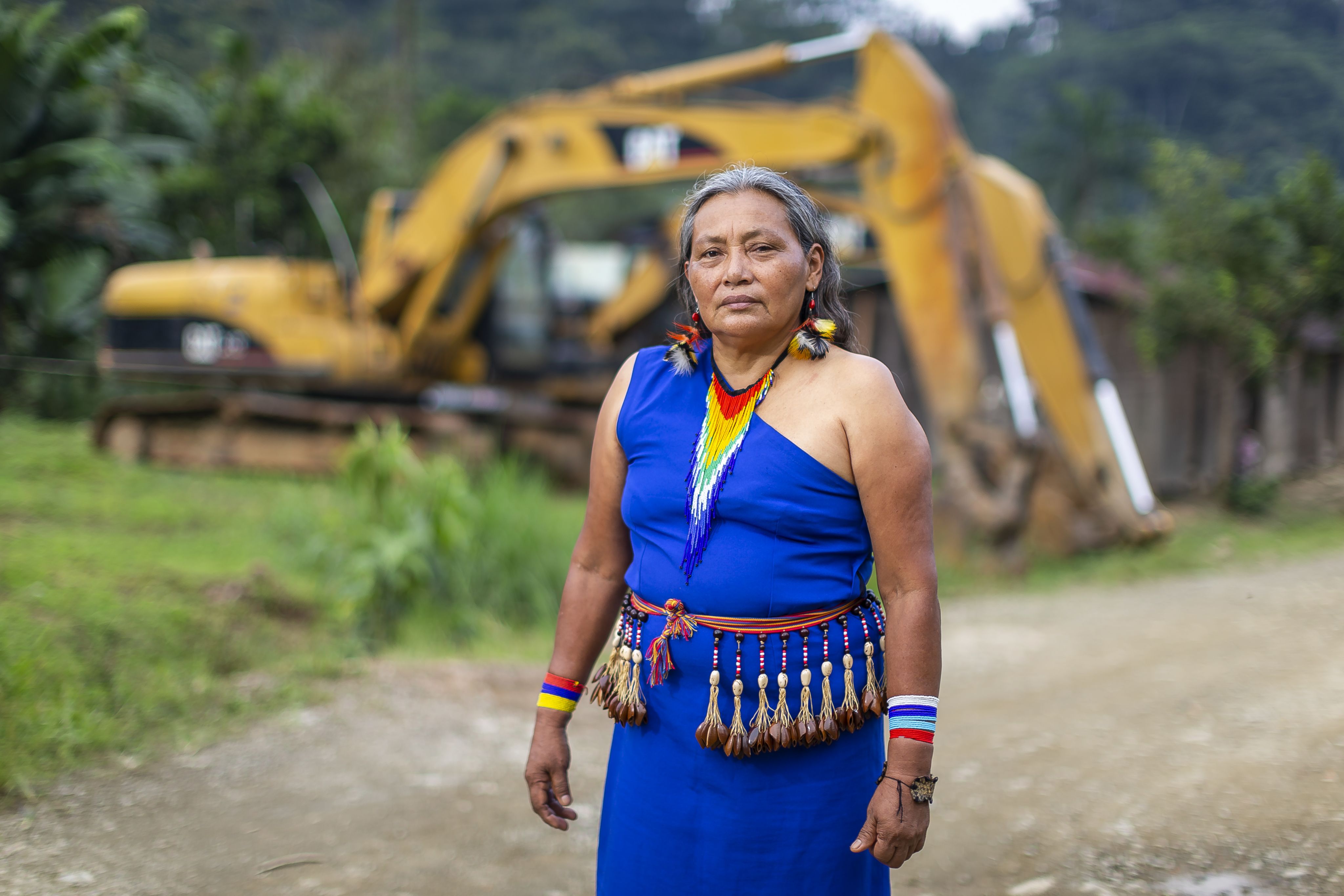
Josefina Tunki, President of the Shuar Arutam people
Josefina Tunki, President of the Shuar Arutam people

Deep in the Amazon rainforest Josefina Tunki stands proudly and defiantly in front of two abandoned 20-tonne diggers.
The giant yellow machines belonged to illegal miners and were confiscated by the local community.
Their drivers were told to “clear off”.
The machines are also spoils of an ongoing war between miners, legal and illegal, greedy for copper and gold and the people living in this paradise.
This had been one of the most inaccessible and unspoilt places on earth, with its lush vegetation and abundant wildlife – until the miners and their massive diggers arrived.
But if they thought they could bulldoze their way through swathes of pristine rainforest and over the rights of the indigenous people, they would have to think again.
And they did not count on Josefina – a strong, determined 60 year old who knows fighting for the survival of her home, her people and her precious way of life, is the most important thing she has ever done.
The Mirror has travelled to Ecuador to meet her and to see first-hand the impact of mining on this beautiful place.
Josefina says: “The destruction in our territory is vast. We have 96 hectares [the size of 134 football pitches] of untouched forest and it’s in this forest where the mining companies are getting in.”
Josefina is the first woman president of the Shuar Arutam people, an indigenous nationality in the Ecuadorian Amazon, and says the government has given a lot of concessions to their lands.
“That is why we are making so many demands on the national and international level for them to understand what we are going through. Once they destroy it, it’ll never be the same.”
Matriarch Josefina has devoted her life to protecting the rainforest and serving her people. She has no children of her own but sees herself as essentially a grandmother and mother to almost 10,000.
If anyone poses a threat to her “children” Josefina will take action – hence the fate of the miners and their diggers.
Josefina is a force to be reckoned with – she hikes for hours barefoot through the jungle with its huge trees housing tropical birds, scaling waterfalls and clambering through caves, in search of ancestral medicine from plants.
She says: “We need to make people understand we do this not only for ourselves but for the planet.”
She campaigns against the multinational corporations that want to bleed the Amazon dry.
Mining exports could generate $4 billion by 2025, according to Ecuador’s government, and the US, UAE, Switzerland and Italy are key markets for Ecuadorian gold.
For centuries indigenous people have fiercely protected their lands from outsiders, but recently they have been given an extra weapon to their arsenal - technology.
All Eyes on the Amazon is a project led by charity Hivos, in partnership with Greenpeace and the Coordination of Indigenous Organizations of the Amazon Basin (COICA), which equips indigenous communities with the technology to bolster their defences from extractive activities such as oil, mining and logging.
As we talk, planes belonging to mining companies fly overhead surveying the area, a constant reminder of the threat the PSHA lives under.
“They are always flying here now,” Josefina says.
Hivos and its partners supply satellite images and drones so the forests can be monitored from above, train people in data collection and mapping while supporting lobbying and awareness campaigns.
The people have learnt how to mobilise and now indigenous guards are on duty 24/7 at the entrance to the territory to keep miners - legal and illegal - out.
The collected information can then be used in court to secure legal protection of territories.
We joined the monitors on patrol to visit a site which had been destroyed a few months earlier by illegal miners who tricked their way into the community.
The monitors will often trek for hours through vast jungle on the lookout for evidence of man-made destruction.
On patrol, devastating drone images show how the illegal miners cleared over a kilometre of rainforest in search for copper and gold.
In response, the furious community confiscated the two diggers and they still sit proudly in the middle of the village as a warning to others who dare to pass.
Down by the river, which was until recently unspoilt, Marcelo Urkuch, one of the leaders of PSHA, explained: “Some diggers arrived at the Indigenous guard and they said they were coming in to build pools to fish and to clean the land [so it could] grow.
“So they tricked us and we let them in. But they were actually mining for gold and copper.
“The monitors realised this was happening and it cannot happen without consultation.
“So we took action and, thanks to the monitors who gathered evidence of what was happening, the assembly of Shuar people decided to throw the miners out.”
According to the Ecuadorian constitution, indigenous people must be consulted and then consent to any activity in the territories.
Marcelo says the people issued the illegal miners an ultimatum.
“We told them, ‘You can go on good terms or bad terms, but you have to pay something for the damage done’.
“They didn’t pay up, so we took their diggers.”
It was a small victory for the PSHA but the damage was already done.
Marcelo says: “The water started getting dirty in the community, the kids are by the river, our people live on the side of the river.
“The Shuar Arutam people have a very strong principle to defend our territory and to defend nature and the environment.
“When we see this happening, we feel so much frustration because we’re never consulted, we’re never asked, we realise what is happening when it’s too late.”
Thanks to the technology supplied by the All Eyes project, the PSHA can keep a close watch on illegal mining like this.
“They won’t be coming back here again,” Marcelo says. “We are very aware now, so we’re using our monitoring team and guards to keep an eye on our territory.”
Carlos Mazabanda, Ecuador’s country co-ordinator of the All Eyes on the Amazon project, was shocked when he saw the damage done by the two diggers but says this only scratches the surface of what’s happening in Ecuador’s Amazon.
Legal projects given the green light by the government are often on a much larger scale than any illegal operations.
“We saw how it starts,” he says. “For me it was really shocking, I didn’t think that these machines went so far. The damage was really big. But they were stopped in time.
“The government says illegal mining is terrible because there are not ‘environmental controls’ and only illegal mining causes environmental impacts.
“But for me, the legal mining of the multinationals is illegal too because they are doing that activity without respect for indigenous rights.
“It is so important to establish a really strong organisation and a good monitoring team.
“If the indigenous people do not have this kind of control of their territory, really bad things could happen.”
Indigenous people here have welcomed the intervention from Hivos and its partners, but in an ideal world it would not be needed.
Above all, they want to be left alone.
“We don’t want confrontation, we don’t want mining, but we do want to produce because we have a lot of resources here which we can sustain ourselves,” Marcelo says.
“But the government sells our land for more money to transnationals because it’s more profitable than to support the indigenous and local communities.”
There is still much work to do, but thanks to the programme, 6.97 million hectares of the Amazon is monitored across Ecuador, Brazil and Peru.
The programme is working on securing more funds so it can continue the vital work across the Amazon.
“We need to have all eyes on the Amazon because there are already a lot of threats,” Carlos says. “We have a lot to do to continue with the monitoring assistance programmes, legal actions, and support to the organisations to continue their work.”
Marcelo adds: “The jungle is very large and we need equipment, time, money and resources to be able to monitor everything that’s happening on the territory.
“If we see logging or mining, whether it’s legal or illegal, we don’t care. We’re keeping an eye on our territory because we don’t want anything to happen here.”
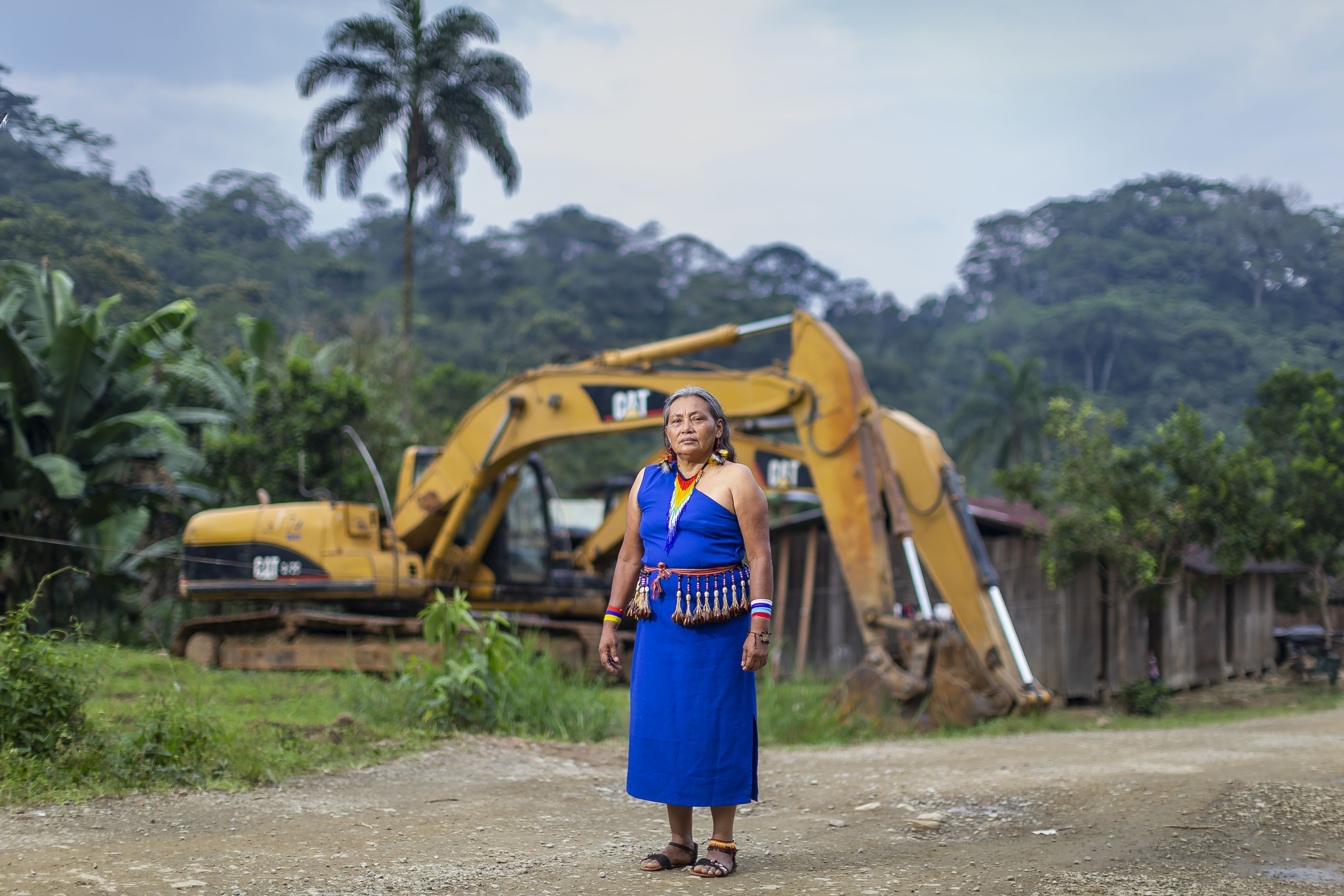
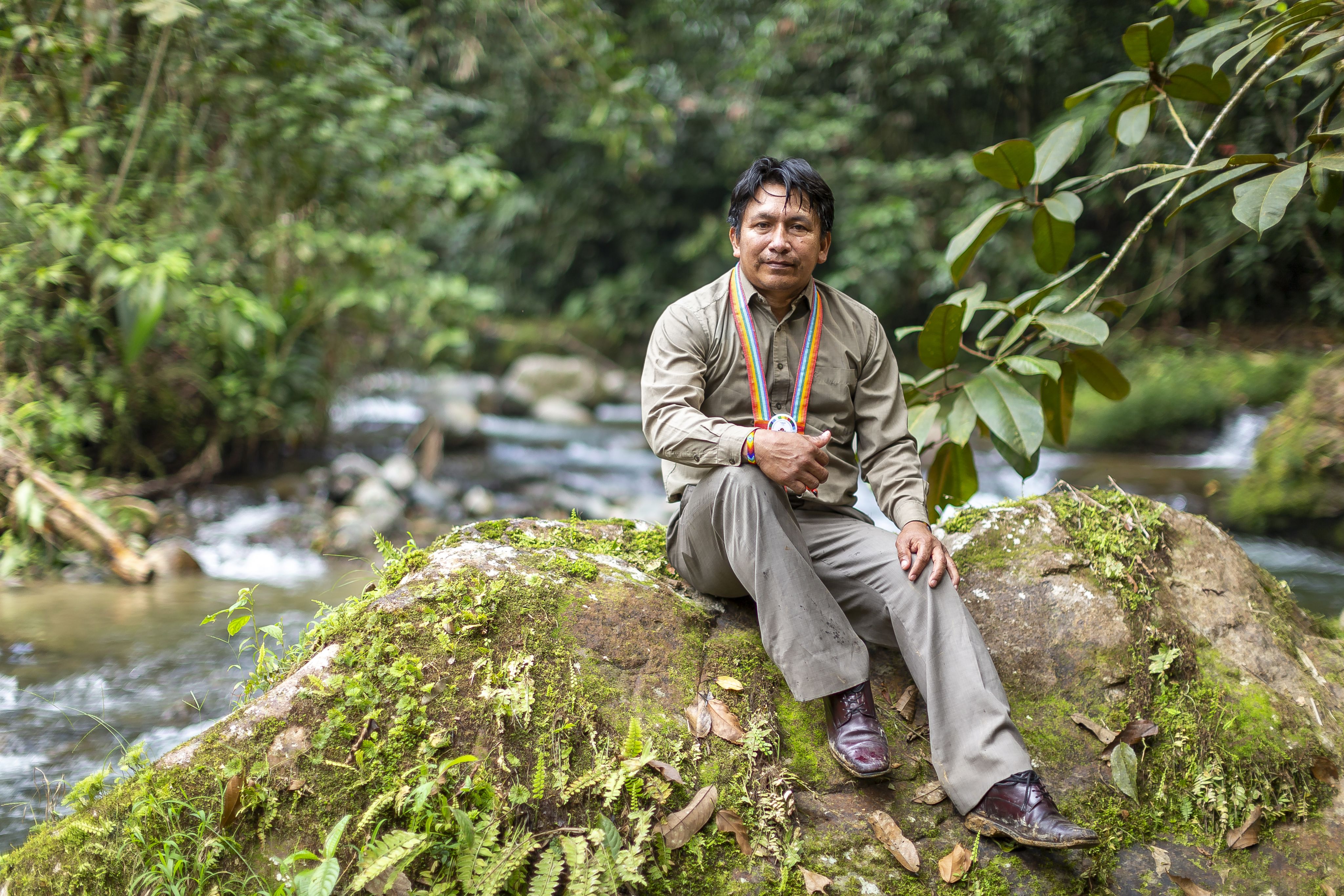
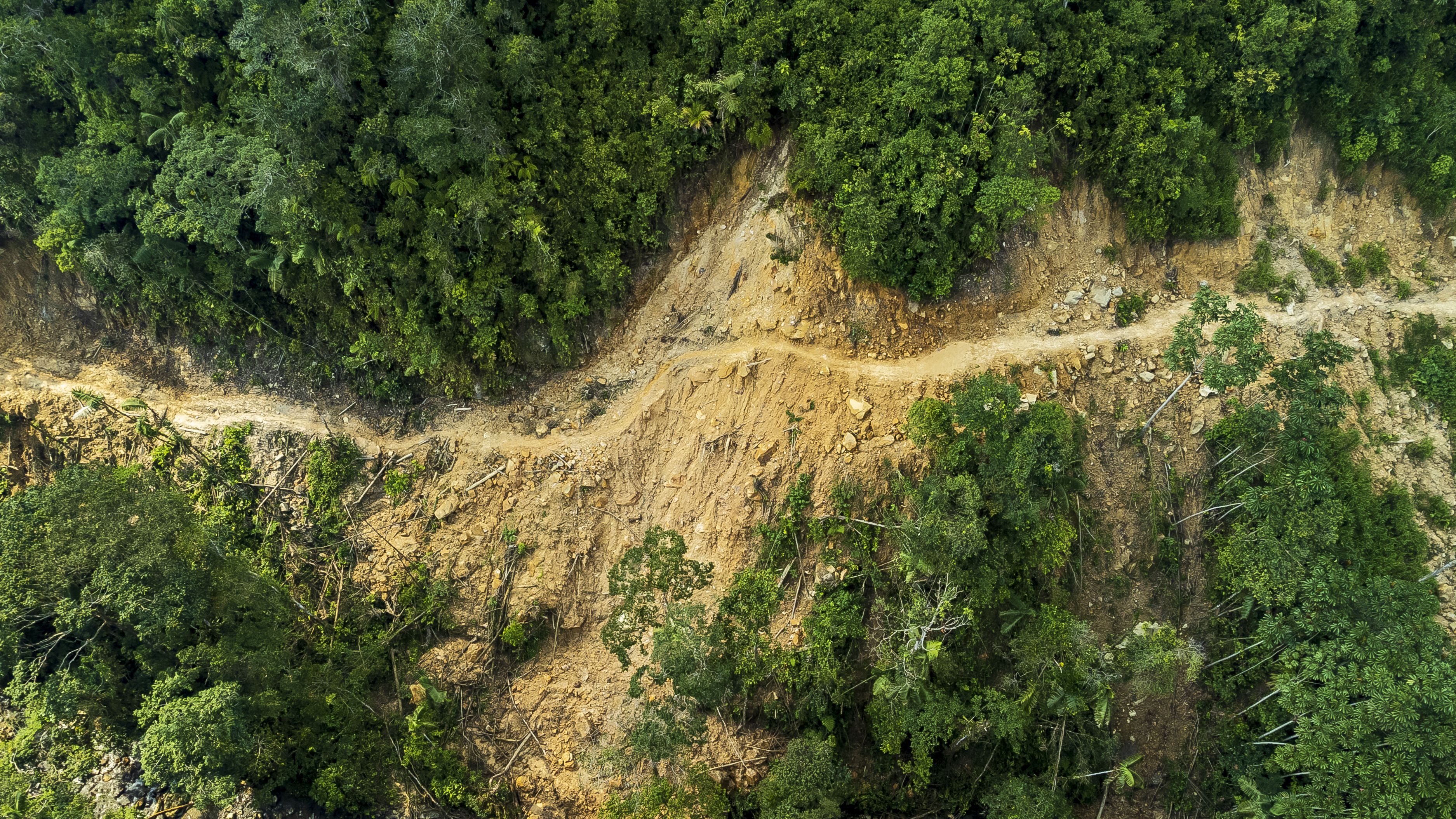
Why it matters
This satellite imagery shows how extractive industries are chipping away at the Amazon.
In 4 years, illegal mining has advanced in the Jatunyacu River in the province of Napo.
Scientists found that the lower part of the rivers is "dead" due to contamination from mining tailings that carry mercury.

Special thanks to...
This story is possible thanks to the Humanist Institute for Development Cooperation - Hivos and the Dutch National Postcode Lottery in the framework of the All Eyes on the Amazon programme.
Thank you to the Shuar Arutam People for inviting us into their community and the Confederation of Indigenous Organizations of the Ecuadorian Amazon (CONFENIAE) for accompanying us in Pastaza on the development of these stories.
To learn more about the programme visit www.alleyesontheamazon.org
Images and drone footage by Adam Gerrard
Shorthand story created by Rhian Lubin
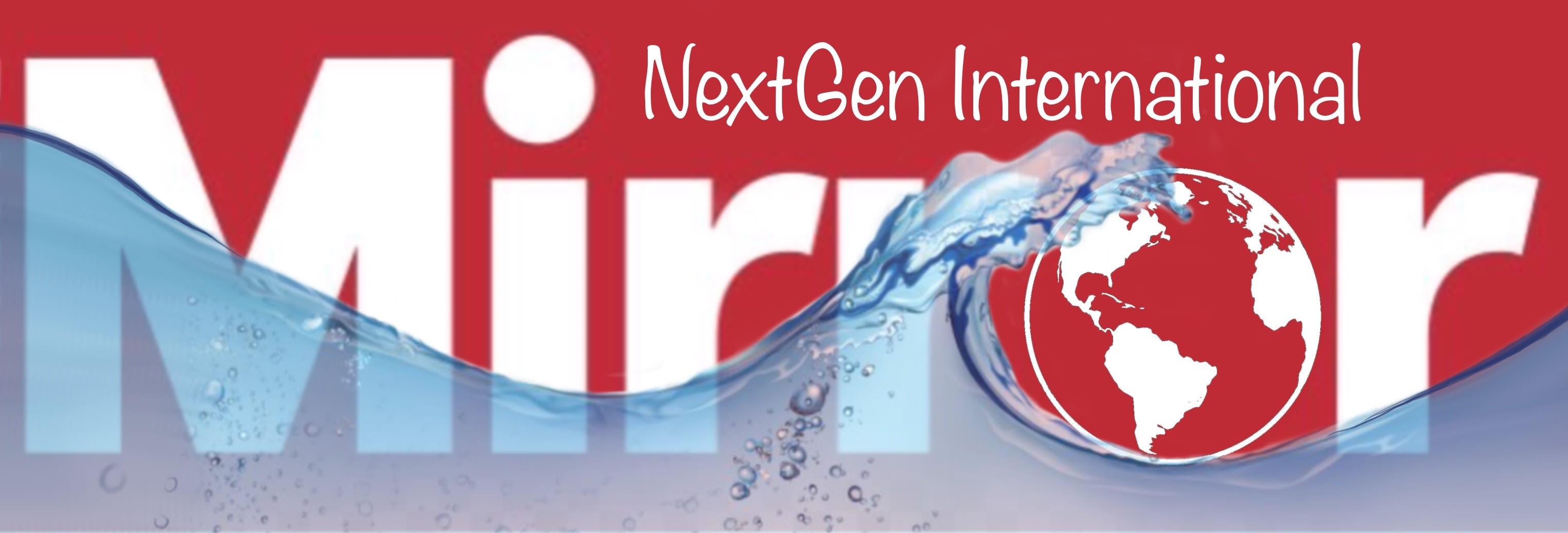
NextGen International was funded by the European Journalism Center’s European Development Journalism Grants programme, supported by the Bill & Melinda Gates Foundation.
